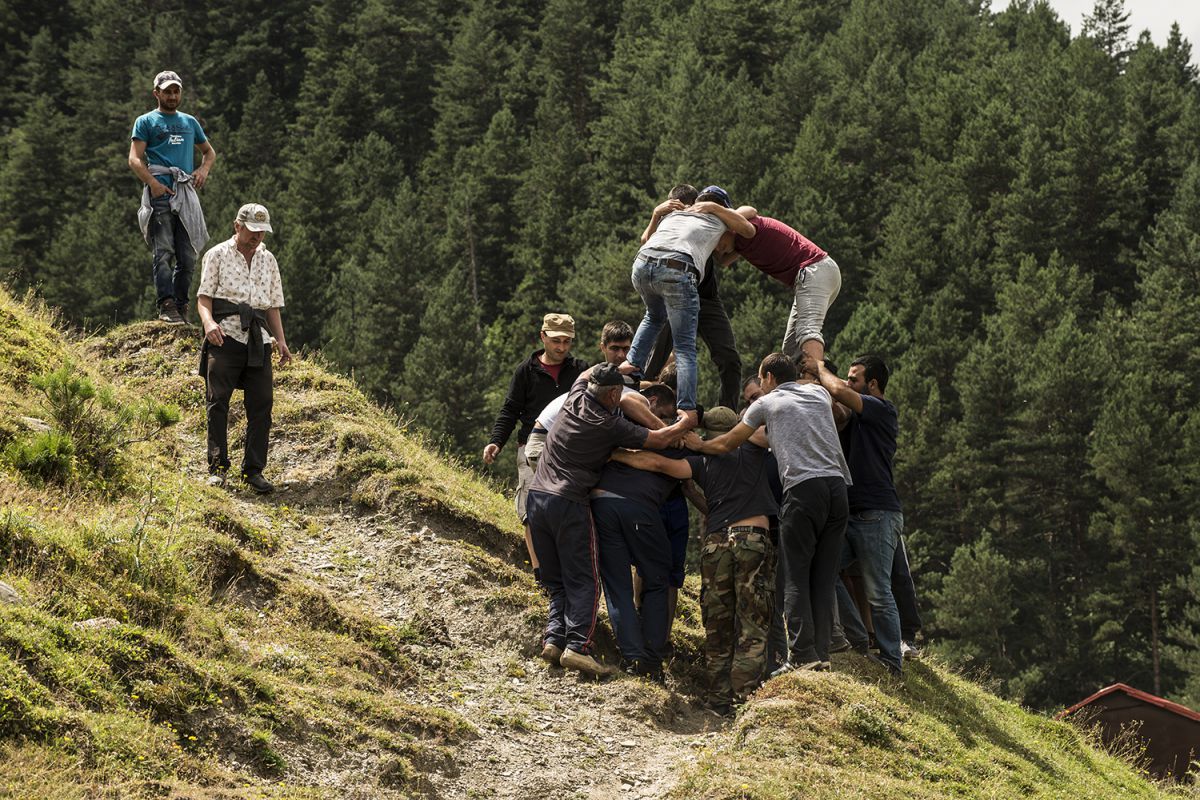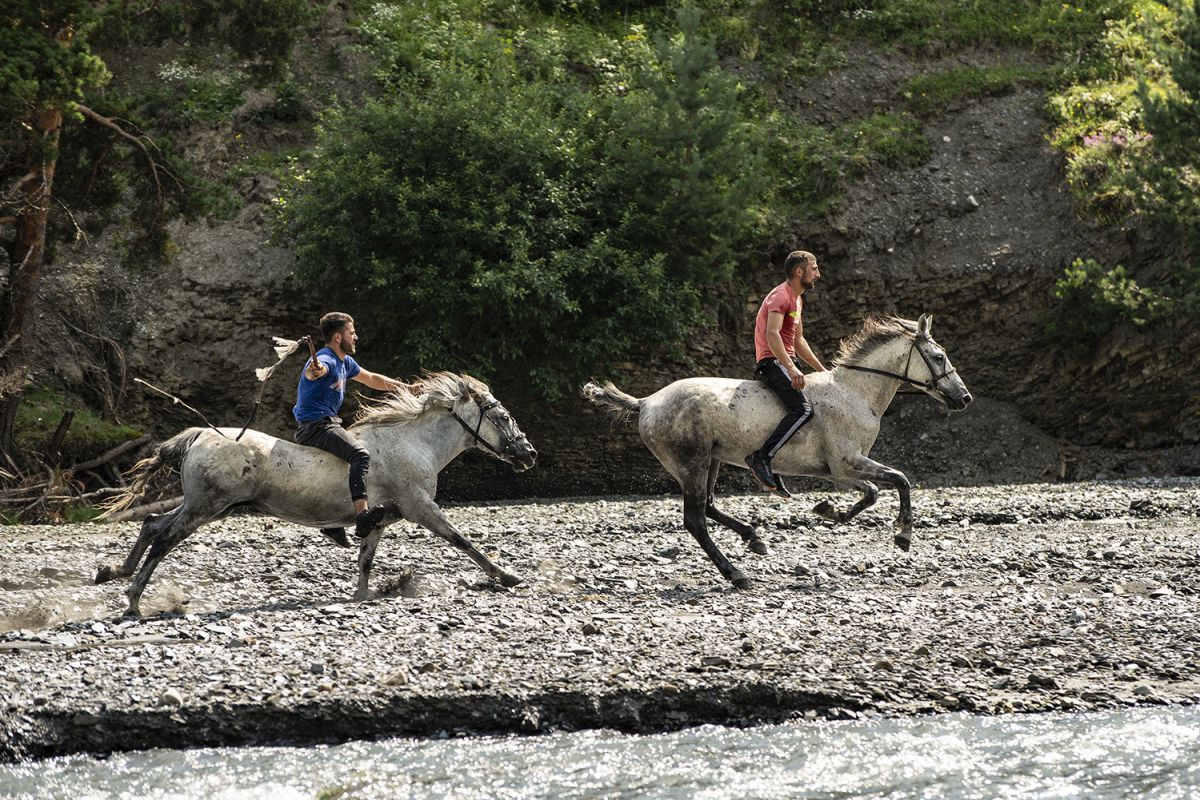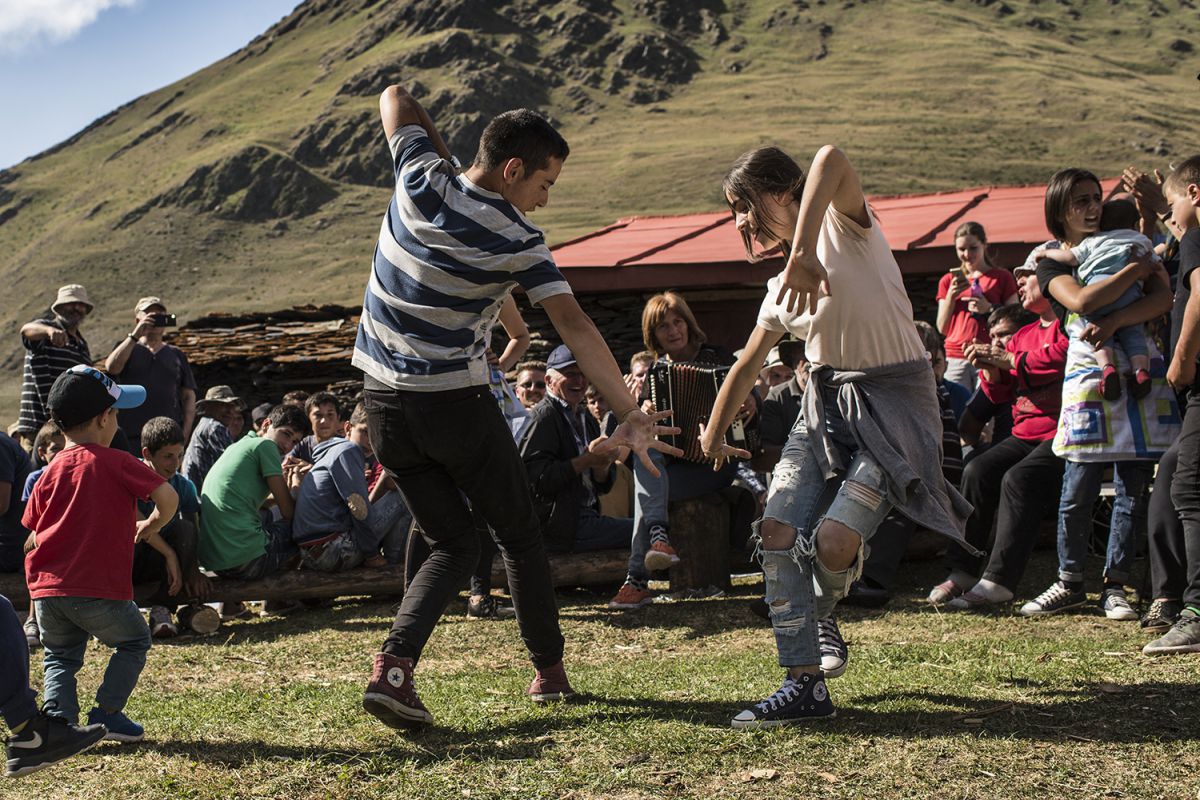
Cultural Heritage
Transport

“Today, the feast belongs to St. George
Cult rituals
Autumn works in Tusheti are preceded by a cycle of summer cult days - Atnigenoba, which begins on the 100th day after Easter and lasts for two weeks. At this time, worship services are held in a certain calendar order in the main cross of all the villages. Atnigenoba host is Shulta elected for a year by the village. A few days before the Atnigenoba, Shulta "hangs the pots", boils alud, in which the whole village participates. The building where the beer is brewed is sacred and entrance of women of the age of motherhood is not allowed.
The rituals of Atnigenoba, or crucifixion, are led by a "craftsman" - a servant of the cross. Only he has the right to "bring out" the flag of the cross and announce the beginning of the Atnigenoba of the whole world through the ringing of bells.
After the flag is raised, the craftsman will bless the aluding code, show mercy to the guests, all the guests of the cross, and "thank you" will be called three times by the men present. After that, they will sit at the blessed table and the feast will start. Men and women must be seated separately.


Without fun and laughter Korbeghela will not end. During Atnigenoba, usual custom activities are horse racing and "making korbeghela": Five men stand shoulder to shoulder in a circle and five others stand on their shoulders. Thus, they carry the korbeghela from the public place (from the gathering place) to the cross (icon). Here, too, they turn three times and disintegrate Korbeghela. Korbeghela is an astral luminosity - a magical ritual of the deity.
After the feast, entertaining ritual games are held. "Chataraoba" - a ceremony of counter fighting between women and men, captivity and redemption are widespread. After the end of the year, the autumn works begin - the mowing and harvesting - the tense season of accommodation.
People who know about the Atnigenoba holidays especially try to make their arrival in Tusheti coincide with it. In addition to the party, this holiday is also a great festival of Georgian art. On this day, the guest who comes to the village will be invited to the table and the Tush people never pay attention to your religious background. At the same time, the Tush people choose to perform cult acts without strangers. It is possible to invite guests to attend them - especially those who know and have been there for many times before.
Author: Nugzar idoidze





